Last night I met up with Emma Crossley, Community Fundraiser for Oxfam in Cambridgeshire, Suffolk and Norfolk, to talk about the Live Below the Line challenge we'll both be taking part in next week to raise awareness and sponsorship for Oxfam GB's global poverty campaigns. We discussed portion control, shopping budgets, and overcoming our foodie prejudices all in the name of charity...
The Live Below the Line team sent me a very helpful email yesterday with some food shopping tips so I could begin to prepare for next week's challenge of living on £1 a day for 5 days. They advised to plan online, take a calculator to the supermarket, and look for cheap 'bottom shelf' products and easy ways to add flavour to a basic meal. I had already planned to think ahead and do one 'big shop' to spend all of my money at once and Emma agreed that this was probably the best way to make a fiver go a bit further. As we ran through our likely shopping lists of economy rice, porridge with water, and tiny scraps of meat or offal to add some flavour, Emma and I realised how we often give very little thought to what we're buying and spending during the course of a week. Convenience is usually the deciding factor. We also discovered we both considered the ethics of supermarket shopping and preferred to know where our food was coming from and how it was prepared, rather than how cheap it is. We're both resigned to shopping in supermarkets for the challenge, especially for the economy ranges on offer, but we decided that if luxuries like meat were going to feature in our diets at all next week, it would have to be tiny portions bought from a local butcher.
A few people have asked me whether I can accept free food next week, which is not included in my £1 a day budget. My yoga teacher offered to 'donate' the essential carton of coconut water after my hot yoga class, to enable me to go along as usual, but I felt that this would be cheating. Emma agreed but we had a long discussion about whether foraging for wild food or adding herbs or plants from the garden to our cooking next week. If it's free and we've sourced it from what's available in the local area, without stealing, then we thought it would be okay. I had images of scouring the commons and riverbanks for dandelion leaves and wild garlic after a long day of living on very few calories and realised that it probably wouldn't be worth the hassle in the long run. I'll certainly remember that when I next hear someone comment that homeless people or those on benefits could do more to help themselves - I guess it's not that easy when you're always running on empty.
The recurring theme of my chat with Emma, over our drinks at The Cambridge Brew House (albeit fairly affordable ones by our usual standards), was how much time we usually spend thinking about food, talking about food, planning and shopping for meals, and then cooking and socialising over our food. We wondered if those living below the poverty line endlessly obsess about where their next meal will come from or whether they become conditioned to the state of being constantly hungry. It must be a constant distraction, to say the least, and terribly painful to live like that on a daily basis. Emma reminded me that this doesn't just conjure up Third World images either; many individuals and families in the UK are barely getting by and must learn to function on insufficient amounts of food, making small portions of essentials stretch further and further, and visiting resources like food banks on a regular basis.
Lots to think about! Watch this space for my updates as I take the challenge from Monday 29 April - Friday 3 May. You can find out more and sponsor me here:

.jpg)
No comments:
Post a comment